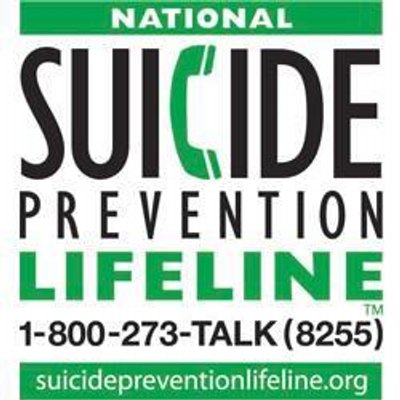Depression and suicide are significant concerns in the field of Nursing, and it is crucial that we address these issues head-on. The mental health of Nurses plays a vital role not only in their own well-being but also in the quality of care they provide to their patients. The demanding nature of the profession, coupled with the high-stress environments they work in, can contribute to the development of depression.
Long hours, emotional strain, and exposure to traumatic situations can take a toll on a Nurse's mental health. The constant pressure to perform at their best, coupled with the responsibility of caring for the lives of others, can lead to feelings of being overwhelmed and despair. It is essential we recognize the signs of depression and suicidal ideation in Nurses and provide them with the necessary support they need.
During Suicide Prevention Month (September), we have a unique opportunity to raise awareness about these issues and take steps to support Nurses who may be struggling. It is important to note that suicide prevention efforts in Nursing should not be limited to a single month. Continued advocacy and support for Nurses' mental health should be ongoing priorities.
Here are some key points to consider:
Prevalence of Depression in Nursing: Nurses often work in high-stress environments, and the demands of the profession can contribute to the development of depression. Long hours, emotional strain, and exposure to traumatic situations can all take a toll on a Nurse's mental health.
Studies have shown that Nurses are at a higher risk of developing depression compared to the general population.
Furthermore, the pressure to provide the best possible care adds an additional layer of stress. They are responsible for the lives and well-being of their patients, and any mistakes or perceived failures can weigh heavily on their conscience. This constant pressure to perform at their best can lead to feelings of inadequacy, self-doubt, and ultimately contribute to the development of depression.
Suicide Risk: Nurses, like many healthcare professionals, may be at a higher risk of suicide due to the stress and emotional toll of their work. It's crucial to recognize the signs of depression and suicidal ideation in Nurses and provide them with appropriate support.
Awareness and Education: Healthcare organizations and institutions can focus on educating Nurses and other healthcare professionals about the signs of depression and suicide risk. Training programs and resources should be made available to help staff identify these issues in themselves and their colleagues.
Something to look out for when concerned that a person may be suicidal is a change in behavior or the presence of entirely new behaviors. This is of sharpest concern if the new or changed behavior is related to a painful event, loss, or change. Most people who take their lives exhibit one or more warning signs, either through what they say or what they do.
Talk- If a person talks about:
- Killing themselves
- Feeling hopeless
- Having no reason to live
- Being a burden to others
- Feeling trapped
- Unbearable pain
Behavior- Behaviors that may signal risk, especially if related to a painful event, loss or change:
- Increased use of alcohol or drugs
- Looking for a way to end their lives, such as searching online for methods
- Withdrawing from activities
- Isolating from family and friends
- Sleeping too much or too little
- Visiting or calling people to say goodbye
- Giving away prized possessions
- Aggression
- Fatigue
Mood- People who are considering suicide often display one or more of the following moods:
- Depression
- Anxiety
- Loss of interest
- Irritability
- Humiliation/Shame
- Agitation/Anger
- Relief/Sudden Improvement
Destigmatizing Mental Health: Reducing the stigma around mental health is essential in Nursing and healthcare in general. Nurses should feel comfortable seeking help for depression or suicidal thoughts without fear of professional repercussions.
Support Systems: Healthcare institutions should establish support systems, including access to mental health services, counseling, and peer support programs. Providing these resources can make a significant difference in helping Nurses cope with the challenges of their profession.
Workplace Stress Reduction: Hospitals and healthcare organizations should also focus on reducing workplace stressors where possible. This can include implementing strategies to manage Nurse-patient ratios, providing adequate breaks, and promoting a healthy work-life balance.
Encourage Self-Care: Nurses should be encouraged to prioritize self-care and seek ways to manage their stress outside of work. This may involve activities like exercise, mindfulness, and spending quality time with loved ones.
Check-Ins and Communication: Supervisors and colleagues should regularly check in with their Nursing staff and create an open and supportive environment where they can discuss their mental health concerns without judgment.
Access to Crisis Hotlines: Ensure that Nurses are aware of and have access to crisis hotlines and mental health resources, such as the National Suicide Prevention Lifeline (1-800-273-TALK) or text 988.
Continued Advocacy: Suicide prevention efforts should not be limited to a single month. Continued advocacy and support for Nurses' mental health should be an ongoing priority.
It's crucial to remember Nurses play a vital role in patient care, and their well-being is closely tied to the quality of care they provide. Addressing depression and suicide is not only a matter of supporting healthcare professionals, but also ensuring the safety and well-being of patients.


 In recent news, the deaths of Kate Spade and Anthony Bourdain have brought the issue of suicide into the spotlight. Suicide is the tenth leading cause of death in the United States, and one of three that is increasing. The other two are Alzheimer’s disease and drug overdose, in part because of the spike in opioid deaths, said
In recent news, the deaths of Kate Spade and Anthony Bourdain have brought the issue of suicide into the spotlight. Suicide is the tenth leading cause of death in the United States, and one of three that is increasing. The other two are Alzheimer’s disease and drug overdose, in part because of the spike in opioid deaths, said 